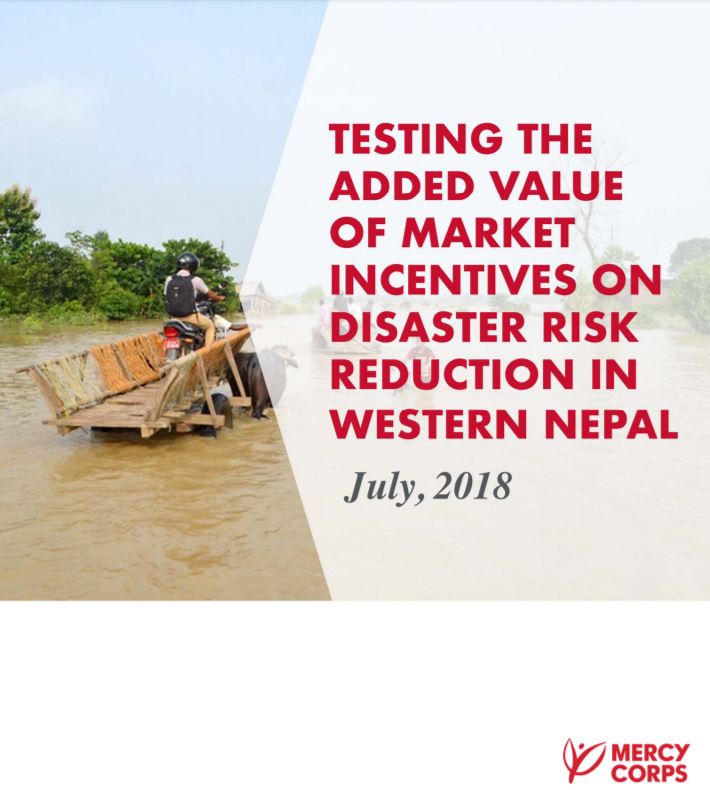2018 | Mercy Corps

This study aims to understand whether households living in Nepalese communities benefiting from combined market-based and traditional DRR activities (MRED’s nexus model) were better off after the 2017 floods relative to households living in communities without these integrated activities. Specifically, the study explores whether nexus households 1) accessed key resilience resources - financial, social, physical, human and natural prior to the flood, 2) used those capacities to respond to appropriately respond to the flooding and 3) were able to maintain or improve their well-being relative to non-nexus households.

1621 North Kent Street, Ste 900,
Arlington, VA, 22209
P 202.534.1400
F 703.276.1433
Website Photos: © mari matsuri
